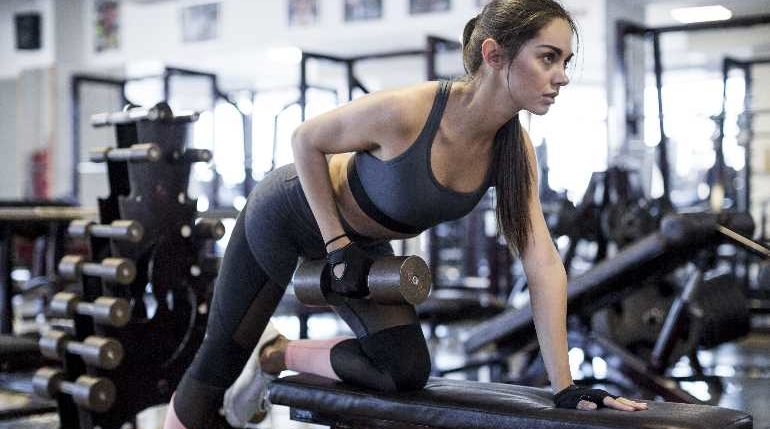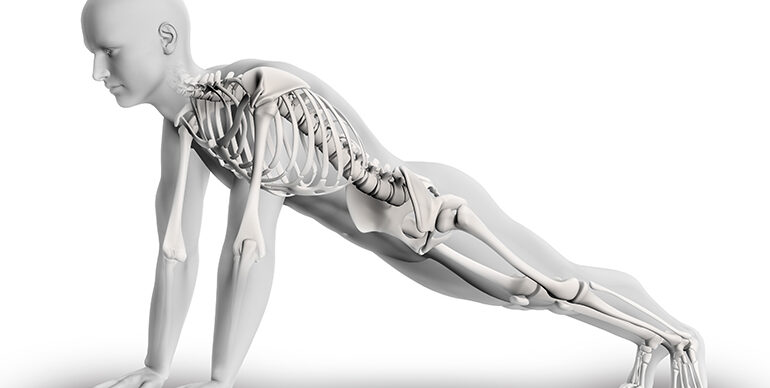
The human body is designed for one thing – survival through homeostasis. Your body desires to keep things constant. If you severely reduce calories from your diet, your body will reduce your metabolic rate and will try to hold onto as much of it’s precious energy reserves as it possibly can. Your body does this in order to keep you starving from death. Well, in today’s times of aplenty and abundance this feature inbuilt within us to ensure our survival is a nuisance that prevents us from seeing our 6 packs!
Face it – your body is going to resist your desire to build bigger muscles too! Muscles are a costly thing for your body! Muscles take a lot of energy – in the form of food – to maintain and interferes with your body’s preferred state of balance. So if you are trying to change your appearance and whether you are trying to get more muscular or leaner, homeostasis is your no.1 enemy! You will have to force your body to listen to your bidding. Our personal fitness trainers always stress on performance first no matter what your fitness goals are. If you want bigger muscles, you must first make those muscles stronger. Your body will only allow your muscles to grow bigger if you give it a reason to do so. If you regularly lift ever-increasing and heavier loads, your body is left with no other option but to allow muscle growth to take place. That is of course assuming that your intake of food is enough to allow this process to take place.
Fat is a Burden
Fat Loss is the exact opposite side of the coin. Your body is content with the extra amount of fat that you have put on over the years and as such your body is willing to slow your metabolism down in order to cling onto that fat. So when you cut calories, you will have to force your body to now give up that fat. If you seek performance from your body, then your body will gradually begin to incorporate these new demands and change it’s style. Remember: Fat is a burden to a body that needs to run faster, lift heavier weights and jump higher than before. Your body will have to give up that fat in order to make you more efficient in your performance. Your body does not care what it looks like in the mirror. Take genetics out of the equation and the difference between one body and another mostly reflects what the two have been trained to do as well as how well the two bodies have been fed.
Muscles that have been trained to do three sets of 12 or 10 reps of unchallenging exercises will do whatever it takes to complete the work out in the easiest manner. If the workout stays the same, the muscles stay the same. In fact, it may even get worse as your body could find easier ways to complete the workout, using less muscle mass and therefore lesser energy. Most bodybuilders assume ‘increased performance’ is one parameter in terms of how much extra weight can be added onto a bar. But there are also ways to gauge progress without using heavier weights.
Method 1
Repetition Progression
Technique: Add a repetition to each set with the same load as the previous workout.
Goal: Increase the amount of work you do in your workouts with the hope of building bigger muscles.
If our personal trainers set you off on doing a three week program, in which you start with 5 sets of 5 reps of each exercise, then your progression would look like this:
Method 2
Set Progression
Technique: Keep adding a set to each exercise while at the same time using the same load as the previous exercise.
Goal: Like Method no.1, this is a way to increase the volume of your workouts viz. the total amount of work that you perform in a systematic manner. Below is how it would work, using the same 5 x 5 program.

Method 3
Technique: Reduce the rest period between each set but use the same weights from one exercise to the next.
Goal: This makes your workouts shorter in duration which is actually a good thing. This technique is also good for athletes who have been trained to go hard and go long.

Method 4
Speed Progression
Technique: Complete every set in less time than the previous set.
Goa: This is another great way to shorten your workouts and increase your ability to hold a strenuous effort for a longer time. This works best for strength-speed type athletes who do not have to use efforts for more than a few seconds at a time such as sprinters, football players, cricketers and tennis players.

All the methods shown above must be combined to meet different goals.
GOAL 1 – Increase Muscle Mass
Methods: Alternate between rep and set progressions
Ideal for: Anyone who wants to pack on more muscle will get results with this.
GOAL 2 – Increase Muscle Mass & Lose Fat
Methods: Alternate between set and rep progressions.
Ideal For: Anyone who has to wear a swimsuit in the future.
Goal 3 – Increase Strength & Lose Fat
Methods: Alternate between speed and rest progressions
Ideal For: Athletes and others who wan to get leaner while maintaining and even increasing strength and agility.
GOAL 4 – Increase Strength & Muscle Mass
Methods: Alternate between speed and set progressions.
Ideal For: Athletes involved in power sports who want to reach the next level.
What About Adding Weights
Of course you can add weights to the bar and dont we all know that this is indeed the best way to measure progress and increase performance. If you can perform the same sets and reps with 15 more kgs tow months down the line, you have made progress. But like I mentioned, this type of exercising is not the only way and it can be counterproductive if overemphasized.
Remember, even if your workouts are well designed and perfectly planned, you cannot continuously keep lifting heavier weights, right? If that was possible, there would be no limits to human performance and 90 year old men would lift double decker buses and win Olympic weightlifting medals! The human body has limitations. There are times when adding weight is not the best way to boost performance. Constantly higher loads will burn you out eventually even in a well-designed program. Our nervous and muscular systems are not very adept at handling ever-increasing stimuli. Recovery from workouts becomes difficult and overtraining soon follows.
Try and alternate load-increasing methods with those that increase set-rep volumes.
Some people dont want to bulk up too much while at the same time adding strength. There is a way to do that which I will talk about in my next article. In the meantime, enjoy your workouts!
Do not miss a single article!
Submit your email id to get new articles directly into your email inbox!
- Zumba Dance Fitness at Byjus - February 25, 2020
- History of Corporate Wellness Programs - February 18, 2020
- Yoga at a Conference - December 11, 2019





Add Review